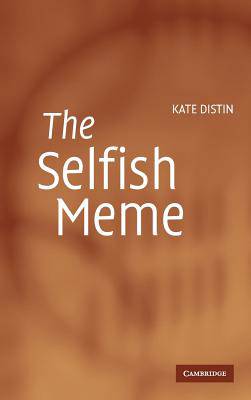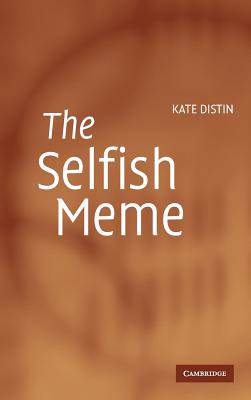
- Afhalen na 1 uur in een winkel met voorraad
- Gratis thuislevering in België vanaf € 30
- Ruim aanbod met 7 miljoen producten
- Afhalen na 1 uur in een winkel met voorraad
- Gratis thuislevering in België vanaf € 30
- Ruim aanbod met 7 miljoen producten
Zoeken
€ 136,95
+ 273 punten
Uitvoering
Omschrijving
Culture is a unique and fascinating aspect of the human species. How did it emerge and how does it develop? Richard Dawkins has suggested that culture evolves and that memes are the cultural replicators, subject to variation and selection in the same way as genes function in the biological world. In this sense human culture is the product of a mindless evolutionary algorithm. Does this imply that we are mere meme machines and that the conscious self is an illusion? Kate Distin extends and strengthens Dawkins's theory and presents a fully developed and workable concept of cultural DNA. She argues that culture's development can be seen both as the result of memetic evolution and as the product of human creativity. Memetic evolution is therefore compatible with the view of humans as conscious and intelligent.
Specificaties
Betrokkenen
- Auteur(s):
- Uitgeverij:
Inhoud
- Aantal bladzijden:
- 238
- Taal:
- Engels
Eigenschappen
- Productcode (EAN):
- 9780521844529
- Verschijningsdatum:
- 10/03/2005
- Uitvoering:
- Hardcover
- Formaat:
- Genaaid
- Afmetingen:
- 152 mm x 231 mm
- Gewicht:
- 430 g

Alleen bij Standaard Boekhandel
+ 273 punten op je klantenkaart van Standaard Boekhandel
Beoordelingen
We publiceren alleen reviews die voldoen aan de voorwaarden voor reviews. Bekijk onze voorwaarden voor reviews.










